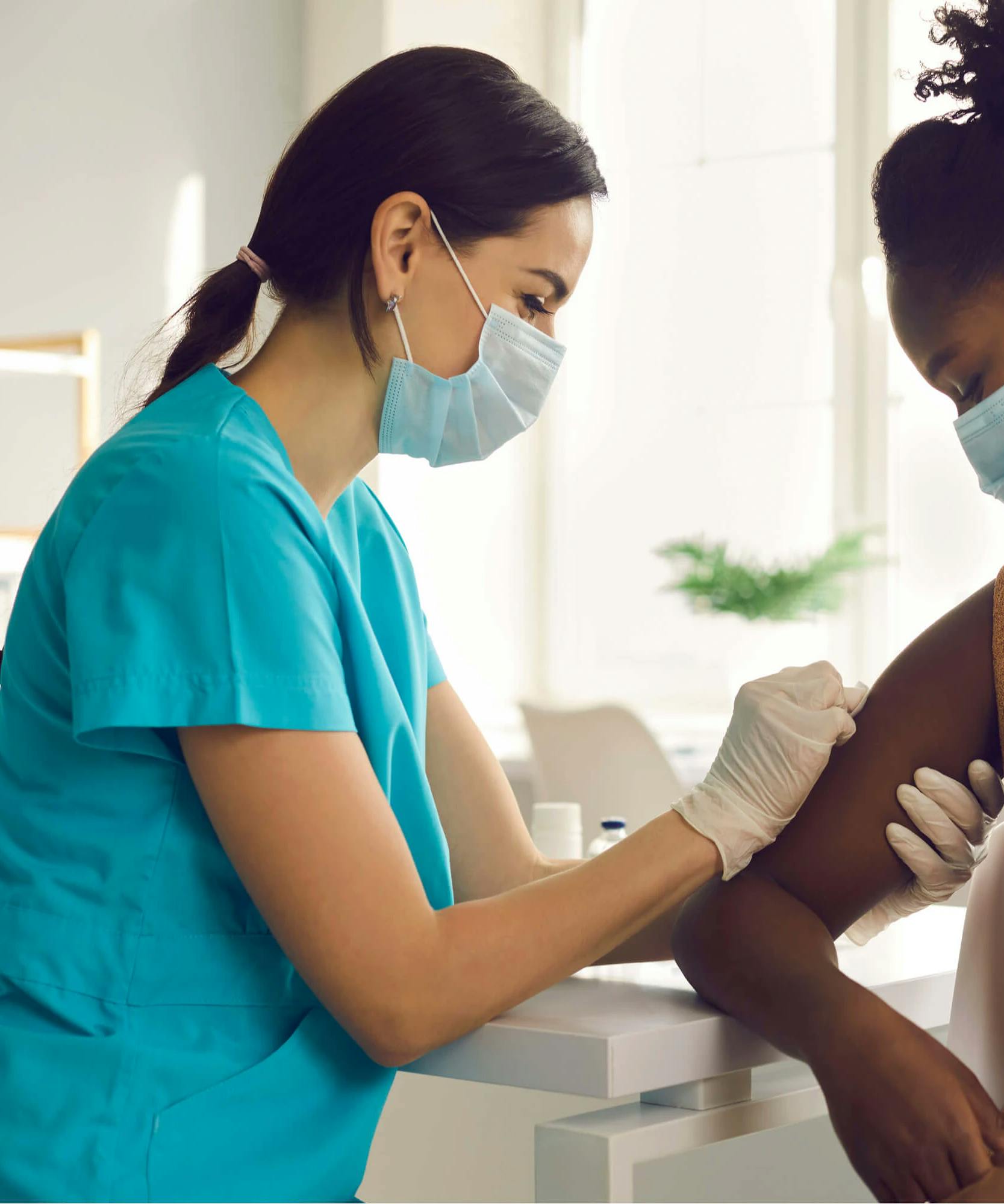Studies Show That Women Are More Vulnerable To Adverse Covid-19 Vaccine Reactions
The vaccine debate just keeps getting more confusing.

Joe Biden has set a goal to vaccinate 160 million U.S. adults against COVID-19 by the Fourth of July. Many in the medical industry are heralding the rushed vaccine as an antidote to pandemic woes, and some colleges are now requiring it for the fall 2021 semester.
The CDC continues to claim that “COVID-19 vaccines are safe and effective,” and the WHO has stated that they’re “working tirelessly with partners to develop, manufacture, and deploy safe and effective vaccines.” These institutions display their information as if they were looking out for the best interests of humanity, yet they continue to recommend a rushed vaccine to women, pregnant women, and nursing mothers despite evidence that the female body experiences a heightened risk of adverse reactions, including abnormal periods and potentially fatal blood clots.
Allergic Reactions
According to the CDC’s own study, more than two-thirds of COVID-19 vaccine side-effects reported during the first month of distribution were found in women. Women also made up 15 out of 16 acute allergic reactions to the mRNA vaccines.
Women made up more than two-thirds of vaccine side-effects reported in the first month of distribution.
These findings are similar to those found in the 2013 H1N1 vaccine reports, which concluded that women of childbearing age were more likely to experience allergic reactions than males. A 2019 study displayed that female mice displayed greater antibody responses than those of male mice. This means that the female body may actually have heightened sensitivity to vaccines because they induce quick chemical changes in the body that the system is not expecting.
Nursing Issues
Allergic reactions are concerning enough, but some breastfeeding mothers who received the vaccine have experienced a decrease in their milk supply. Despite this, reports of that specific issue have been downplayed, if not completely silenced.
The CDC admits that there’s no data on the safety of the vaccine for lactating mothers.
The CDC admits that there’s no data on the safety of the vaccine for lactating mothers, and its effects on milk production are unknown. The Academy of Breastfeeding Medicine advises that “Individuals who are lactating should discuss the risks and benefits of vaccination with their health care provider” and that “Health care providers should use shared decision making in discussing the benefits of the vaccine for preventing COVID-19 and its complications, the risks to mother and child of cessation of breastfeeding, and the biological plausibility of vaccine risks and benefits to the breastfed child.”
Yet, numerous articles and ads encourage nursing mothers to get the vaccine because it may transfer to babies in their milk. There’s still no conclusive evidence that this is actually true.
Social Pressure
As more and more people “roll up their sleeves” for the vaccine, some businesses are rewarding them with coupons and gifts. Multiple businesses have already declared that only vaccinated individuals will be allowed into their buildings without a mask.
Vaccine passports are required to attend specific sporting events in New York and other venues in California. These pressures encourage women ─ who are at an increased risk of adverse reactions ─ to make medical decisions based on public opinion rather than medical science.
Women need to be informed of the risks they’re taking when considering the COVID-19 vaccine.
Women are more sensitive to the COVID-19 shot, yet doctors, politicians, and corporations are urging “everyone” to get it. Even with multiple studies proving the vaccine can be harmful for the female body, and that the virus itself is not as deadly as previously predicted, they continue this rhetoric. It’s irresponsible and dangerous. It's especially reckless considering that the vaccine is not approved by the FDA except for emergency use, meaning it will be years before we have enough data to show whether it's truly safe or not.
Closing Thoughts
Women need to be informed of the risks they’re taking when considering the COVID-19 vaccine. Despite the social pressures, every woman should discuss current medical findings with their health care provider and do what’s best for them.
We want to know what you think about Evie! Take the official Evie reader survey.